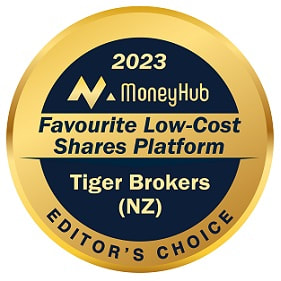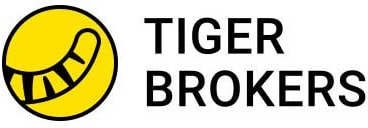Stake vs Tiger Brokers - What share investment platform is best for you?
Our comparison of Stake and Tiger Brokers looks at the features, fee structures, key similarities and differences, and frequently asked questions about both platforms and investing in general.
Updated 6 May 2024
Important: This comparison is specifically tailored for New Zealand users comparing Stake and Tiger Brokers. It does not address the services provided by these platforms in Australia.
Important: This comparison is specifically tailored for New Zealand users comparing Stake and Tiger Brokers. It does not address the services provided by these platforms in Australia.
A Summary of Our Comparison:
Know This: It's important to note that while this guide compares Tiger Brokers and Stake, the comparisons and analysis have been kept to a relatively high level. For more in-depth information about legal or fee structures, we've included hyperlinks to their respective websites that provide a more detailed review.
Our guide covers:
Disclaimer: MoneyHub is not a Financial Adviser, and this comparison guide has been published to explain the investment fundamentals and outlines the pros and cons of Stake and Tiger Brokers (NZ) as investment platforms.
- Stake offers one investing market - the US. Our review focuses on anyone wanting to invest in the US and choosing between Stake and Tiger Brokers.
- DIY investing has become a common pastime. However, with this increase in trading volume has come a significant number of players in the share trading market. Both local and international start-ups have entered the market to try and compete for New Zealand's investing community. However, with many different options, it can be hard to understand which share trading platforms are best.
- One of the most popular share platforms for New Zealanders is Stake. On the other hand, Tiger Brokers is a relatively new entrant to the New Zealand market and has been extremely active with marketing and outreach to push their new and improved platform.
- So, which platform is better? This guide compares and contrasts Stake and Tiger Brokers to understand the benefits and drawbacks of each. We walk through the top facts you need to know and the most frequently asked questions that New Zealanders have regarding Tiger Brokers and Stake.
Know This: It's important to note that while this guide compares Tiger Brokers and Stake, the comparisons and analysis have been kept to a relatively high level. For more in-depth information about legal or fee structures, we've included hyperlinks to their respective websites that provide a more detailed review.
Our guide covers:
- Our Overview of Each Platform
- Tiger Brokers' Platform, Features and Fee Structure
- Stake's Platform Products, Features and Fee Structure
- Key Similarities between Tiger Brokers and Stake
- Key Differences between Tiger Brokers and Stake
- Conclusion
- Frequently Asked Questions
Disclaimer: MoneyHub is not a Financial Adviser, and this comparison guide has been published to explain the investment fundamentals and outlines the pros and cons of Stake and Tiger Brokers (NZ) as investment platforms.
|
Read our comprehensive Stake Review
Best For
|
Read our comprehensive Tiger Brokers (NZ) Review
Best for:
|
Tiger Brokers (NZ) is our Favourite Low-Cost Shares Platform in our 2023 Editor's Choice Awards:
MoneyHub’s Editor Christopher Walsh says: "Tiger Brokers is focused on global investing, and at a time when some other platforms have raised their fees, Tiger Brokers is around half the cost of its nearest competitor for US stock trades. Tiger Brokers is the only global online player to have a local Auckland-based team and to be regulated in New Zealand. It focuses on delivering low fees to global market investors looking to build wealth using shares, futures and options. It continues to innovate and has recently launched auto-invest, fractional shares and its own TigerGPT investment chatbot." |
Our Overview of Each Platform
Tiger Brokers
- Tiger Fintech New Zealand, owned by Tiger Brokers NZ, was registered with Financial Service Provider in 2021, targeting local New Zealand investors.
- The Tiger Trade app is Tiger Broker's New Zealand share trading platform that can be accessed on your phone or computer. In addition, Tiger Brokers offers a wide range of investments across multiple regions worldwide.
- Tiger Brokers allows New Zealanders to invest in stocks listed in the United States, Australian, Singapore, Hong Kong, and China stock markets, as well as financial derivatives like Options and Futures contracts.
- Tiger Brokers New Zealand is related to the international parent company of Tiger Brokers, known as Up Fintech Holdings. Up Fintech Holdings is publicly listed on NASDAQ under the stock ticker TIGR.
Stake
- Stake is a full suite brokerage with app and web. It serves anyone accessing the US market with full functionality (all order types, day trading) and has over 500,000+ customers worldwide, including tens of thousands in New Zealand. It offers 6,000+ shares and ETFs. Per Stake's founding team, 77% of their investors have bought and sold shares before, so it appears to appeal to experienced investors.
- Stake is only focused on US stocks and doesn't offer any access to any other market to New Zealanders, although Australian customers are offered access to the ASX.
- Stake offers specific features such as an education academy, and a paid Stake Black service where investors can, among other benefits, trade instantly on unsettled funds. Like Tiger Brokers (NZ), Stake also offers extended trading hours for US markets.
- Launched in 2017 in Sydney, Stake was created by a small team, one of whom has worked as an equities trader in the US. From releasing version 1.0 of Stake to Australians in 2017, Stake originally grew on the back of promoting its fee-free trade feature. Today, it's a serious player and introduced USD 3 trade fees in March 2023.
Tiger Brokers Platform, Features and Fee Structure
Tiger Brokers Products
- Tiger Brokers provides investment products in many different markets, including stocks, exchange-traded funds (ETFs), US OTC stocks, options, futures, warrants, CBBCs and REITs.
- It provides these products in global markets such as the United States (through the NYSE, NASDAQ, AMEX and CME as examples), Australia (through the ASX), Hong Kong (through the HKEx), Singapore (through the SGX) and China (through the Shanghai Stock Exchange and Shenzhen Stock Exchange via HKEx).
- Important: Options and futures can be complicated and are usually only suitable for experienced traders who fully understand the inherent risks associated with trading these derivatives.
- Additionally, Tiger Brokers provides advanced technical analysis, live streaming data, and in-depth market information so buyers can get the most up-to-date information for their trades, pre-market and post-market trading hours for the US market – meaning you can trade for up to 16 hours every day, and much more.
Tiger Brokers Features and User Interface
- The Tiger Brokers platform (Tiger Trade) has a wide range of functionality that investors can take advantage of. The platform has a lot more functionality and customisation compared to Stake. At first glance, the interface can look complicated, but after a few uses of the app, the value of the additional features and functions is evident.
- With eight order types available, including limit orders, market orders and stop-loss orders, detailed company information, technical analysis overlay for stocks and multi-chart layout, the Tiger Trade app is more comprehensive than the simplistic layout of the Stake website and app.
- The Tiger Trade app also offers a live demo account (known as "paper trading") that is available to all registered users. This demo account is automatically loaded with US$100,000 and allows New Zealand investors to familiarise themselves with the trading platform before investing real money into the financial markets. The user interface on IOS, Android and desktop is sleek, user-friendly, and customisable.
- Tiger Brokers also has a detailed 'Features' comparison page that lists out some of the most important differences that investors should be familiar with.
Tiger Brokers Fees
- Tiger Brokers do not charge any fees to register, open an account and trade. Instead, Tiger Brokers charges a flat minimum amount per order (depending on the exchange you're buying/selling on) and either a percentage of the total trade value or a flat rate per share.
- For US stocks and ETFs, there is a minimum $2 per order (flat fee to buy or sell up to 200 shares and USD 0.01 for every additional share after that per transaction) and pass-through fees apply.
- When it comes to buying and selling stocks, Tiger Brokers is very cost-effective versus local competitors. Tiger Brokers has very competitive pricing compared to other competitors in the New Zealand brokerage platform space (such as Hatch, Sharesies, Stake and Jarden Direct). Tiger Brokers has a detailed 'How we compare' chart on their website, that details the fees that will be paid at different investment values, e.g. $100, $500, $1,000, etc.
- For US shares, there is a 0.35% FX fee when converting NZD to USD and AUD to USD. For more details on the fees and commissions across all the markets associated with Tiger Brokers, check out our Tiger Brokers Review.
Stake Platform Products, Features and Fee Structure
Stake Products
- Stake provides access to stocks and ETFs listed in the United States (through the NYSE, NASDAQ and CBOE for example).
Stake Features and User Interface
- Stake has a flexible structure when it comes to investing, as the platform doesn't have a minimum required investment amount to purchase stocks. However, with a 3 USD brokerage fee (or 0.01% per US trade $30,000 or greater), most investors will buy at least USD 100 of stocks to spread the brokerage fee on a larger investment. Stake also offers fractional shares (they're able to offer you ownership in stock by "slicing" up the stock into smaller portions).
- Having no minimum investment amounts is arguably helpful for beginner investors or those not initially intending to put a lot of money/capital into the financial markets. This lack of minimum amount creates a low barrier to entry for New Zealanders to get into investing and learn more about stocks and ETFs.
- Regarding the user interface, Stake offers both a website and an app for Android and Apple, and has a platform focused on analytics and stock history to help investors make informed decisions.
Stake Fees
- Stake doesn't charge any annual fees to become and stay a member. Instead, there is a simple USD 3 fee per trade (known as a "brokerage fee").
- For example, if you want to invest USD 1,000 into a company such as Microsoft, Stake will deduct USD 3 from the balance and invest USD 997 into Microsoft shares.
- If you're converting money from NZD to USD, there's a 1.00% fee. You'll pay another 1.00% to convert USD to NZD.
- For more information on Stake's fee structure, you can get a detailed breakdown of their pricing here.
Key Similarities between Stake and Tiger Brokers
Both platforms have no minimum investment amounts.Both Stake and Tiger Brokers have no minimum investing amounts when stock investing. However, it's important to know that both will charge fees on the order or total transaction volume, so the more you invest, the more efficiently your fees are expensed against your trade.
|
Both platforms are relatively fast and easy to set up an account and get funded.The sign-up process for both Stake and Tiger Brokers is extremely quick. You'll likely only need a form of identification (such as a passport or driver's licence), bank account, IRD number, and address to get started.
While the validation process can take a few days, both platforms make it seamless and easy to sign up and automate all the relevant KYC (Know Your Client) and AML (Anti-Money Laundering) requirements set out by the FMA (Financial Markets Authority). Once setup, both platforms are relatively easy and fast to fund your accounts.
Know This: Tiger Brokers offers an additional method of funding through NZ-owned Akahu, which utilises open banking infrastructure to allow users to better control and transfer their funds to their accounts. Once you have verified your bank account through Akahu, you will be able to deposit funds to your Tiger Brokers account instantly. For more information on the collaboration between Akahu and Tiger Brokers, check out this post on Tiger Brokers' website. |
Both platforms offer Market, Limit, and Stop orders.Our brief overview explains the differences, and Stake has a dedicated order type guide:
Market Orders:
Limit Orders:
Stop Orders:
|
Both platforms provide robust online customer support.Both Stake and Tiger Brokers have relatively intuitive and responsive customer support channels.
|
Both platforms offer competitive foreign exchange rates and brokerage fees, but Tiger Brokers is much cheaperGenerally, both platforms offer great value for money when purchasing securities when compared to other ways to buy US shares. However, small differences do exist:
|
Key Differences between Stake and Tiger Brokers
The Clearing House for US shares.Stake uses DriveWealth to offer US shares. If something were to happen to either Stake, you'd likely be given sufficient notice to withdraw your funds or transfer your shareholding from Stake to another US-based broker.
If DriveWealth were to become insolvent, US regulation ensures that investors are insured on the security (stocks, bonds, etc.) and monetary value of their holdings up to a certain threshold. This limit is usually a minimum of around USD 250,000 depending on the level of protection the brokerage platform has under the relevant regulation, such as whether the brokerage platform has SIPC (Securities Investor Protection Corporation) coverage. From what we can tell, this information has not been disclosed by Stake. On the other hand, Tiger Brokers uses a subsidiary of their NASDAQ-listed ultimate holding company, Up Fintech Holding, as the clearing house for their US securities. The company that makes these trades is TradeUP Securities, Inc. which is a licensed entity registered with the SEC (No.: 8-36754), member of the FINRA (CRD: 18483), member of the SIPC, member of the Depository Trust Company (DTC) and the National Securities Clearing Corporation (NSCC), and regulated by FINRA and SEC. Tiger Brokers uses an in-house company as their clearing house and therefore has more control over the function and future of this offering. |
Tiger Brokers provides better access to international markets.Given the significant size of Tiger Brokers and its prevalence in international markets outside Australia and New Zealand, Tiger Brokers offer much greater access to the absolute number of offshore markets, types of securities and level of derivatives. This is because Stake only offers US markets to New Zealanders.
For New Zealanders looking to invest in securities in offshore markets like Hong Kong, Singapore or China, Tiger Brokers will be able to provide that international access compared to Stake which only offers US shares. However, if you're investing beyond the US, you'll need to make financial, tax and analytical considerations when investing offshore. Additionally, having more investments in more offshore markets becomes more complex to manage when it comes to foreign exchange, FIF (Foreign Investment Fund) tax and ultimate ownership implications. |
Stake is owned by private Australian-based investors, whereas offshore investors mainly own Tiger Brokers.Stake was co-founded by two Australians, and the Australian-based company is privately owned and venture-backed. This article profiles the company's history.
The ultimate holding company of Tiger Brokers is publicly listed on the NASDAQ Exchange and was founded in China. Both platforms utilise custody accounts to ensure that there remains a separation between the customer's capital and the broker's capital. In addition, both companies have strong financial and reporting teams to ensure these records are kept up to date. |
Tiger Brokers consistently offers promotions and bonuses, whereas Stake does not.Tiger Brokers has been heavily marketing its platform with attractive sign-up bonuses relative to other brokerage platforms. As well as previous promotions this year for giveaways of shares after minimum deposits, and also offering zero transaction fees (e.g. brokerage fees) four times for US and ASX shares every month, for life, and zero currency exchange fees for the first NZ$2,000 of currency exchanged every month, for life (NZD to/from USD and AUD).
In contrast, Stake rarely run promotional sign-ups; the one consistent promotion they have is a free Nike, Dropbox, GoPro or a mystery stock when you sign up and fund your account within 24 hours. This lack of promos doesn't reflect badly on Stake; it's just a different approach to marketing and user growth to the one that Tiger Brokers uses. Be aware: If you want to sell the free stock Stake offers when you sign up, it will cost USD 3 to do so. In many instances, this may cost more than the value of the share (for example, GoPro), so the value of the promotion is questionable. |
Both Stake and Tiger Brokers have mobile applications availableHowever, what they offer varies:
Stake: The Stake mobile app provides a sleek and intuitive user interface that allows for easy navigation and trade execution. Available on both iOS and Android platforms, users have received the app positively. The ratings on Apple and Android reflect its efficiency and ease of use, but there have been some reports of occasional glitches and delays which Stake which the development team regularly responds to. Tiger Brokers: Tiger Brokers' app offers a comprehensive trading experience with many tools and features. The app boasts real-time data, advanced charting tools, and news feeds to inform traders. With robust ratings on both Apple and Android platforms, users appreciate its functionality and depth. However, as with any app, some users have mentioned areas for improvement, particularly interface customisation. For those who prioritise mobile trading, it's essential to consider both the features provided and the app's overall user experience. Each trader's preference will vary, so trying out both apps might give the best insight. |
Our Conclusion
Summary
- Stake and Tiger Brokers run investing platforms that offer cost-competitive offerings for US stocks. However, when it comes to trade/brokerage fees and FX fees, Tiger Brokers is about 30% cheaper for standard trades. And the FX fees for NZD/USD are around 35% of what Stake charges.
- Stake is popular with beginner investors and experienced New Zealanders looking to specifically buy and sell US stocks.
- Tiger Brokers has more functionality for those looking for more markets (e.g. ASX, Asian markets and more), advanced products (options and futures) to meet the needs of investors looking to invest in a wider range of offshore investment products or those who are transacting at higher dollar amounts or stock volumes.
- Tiger Brokers will likely become a popular platform to move to for many New Zealanders once they get more experienced and want to connect to a global investor community. Being listed on the NASDAQ Exchange with almost 10 million users worldwide, Tiger Brokers brings an international angle that Stake doesn't have.
For more information on our brokerage platform reviews, check them out here:
For more information on our brokerage platform comparisons, check them out here:
- Tiger Brokers Review
- Hatch Review
- Sharesies Review
- Stake Review
- Interactive Brokers Review
- Jarden Direct Review
- ASB Securities Review
- InvestNow Review
For more information on our brokerage platform comparisons, check them out here:
Frequently Asked Questions
How do brokers make money? How can some brokers provide commission-free trading? Am I getting ripped off somewhere?
While most brokerage platforms generate revenue through a few means:
Some platforms, such as RobinHood and even Tiger Brokers, during a promotion earlier this year, offer lifetime commission-free trading.
However, commission-free brokers still have costs and aren't run as charities. The main way they generate revenue is by selling the market data they generate (the market "orders" that their clients put through) to "market makers" (a fancy term for trading houses that match up buyers and sellers) such as Citadel, IMC or Optiver. The market makers can then profit on these orders at the margin (normally by being one-millionth of a second faster to conduct the trade than competitors). This "Payment for Order Flow" (the term used by Robinhood to describe their business model) is how most commission-free brokers earn revenue.
- Taking a flat or percentage fee of the total trade value
- Taking a fee from currency exchange
- Annual account fees as a result of holding an account with the brokerage platform
- Other revenue-generating services from third parties (through things like cross-selling or earning commissions through referrals to other companies)
Some platforms, such as RobinHood and even Tiger Brokers, during a promotion earlier this year, offer lifetime commission-free trading.
However, commission-free brokers still have costs and aren't run as charities. The main way they generate revenue is by selling the market data they generate (the market "orders" that their clients put through) to "market makers" (a fancy term for trading houses that match up buyers and sellers) such as Citadel, IMC or Optiver. The market makers can then profit on these orders at the margin (normally by being one-millionth of a second faster to conduct the trade than competitors). This "Payment for Order Flow" (the term used by Robinhood to describe their business model) is how most commission-free brokers earn revenue.
How long will it take me to open an account with Stake or Tiger Brokers?
The online registration process for Tiger Brokers and Stake is extremely easy and fast. The online registration process can take anywhere from five to fifteen minutes. However, there may be a delay between when you finish the online registration process and when you can place your first trade. Companies need to undergo KYC (Know Your Client), AML (Anti-Money Laundering) and other relevant protocols to ensure their new users comply with all regulations.
Additionally, funding your account may take up to three business days, depending on the method you pick (bank transfer, POLi, or through an open banking API like Akahu).
Additionally, funding your account may take up to three business days, depending on the method you pick (bank transfer, POLi, or through an open banking API like Akahu).
I'm concerned with my privacy, given Tiger Brokers was founded in China. Is my private information at risk with Tiger Brokers?
Tiger Brokers in New Zealand trades under Tiger Fintech (NZ) Limited and is a client money and property services provider under the Financial Markets Conduct Act 2013 and adheres to various financial service laws in New Zealand. They also have a detailed privacy policy that is available to view on their website, which details how they use and protect your information, etc. The ultimate holding company, Up Fintech Holding, is listed on the NASDAQ, and this status as a listed company means it has to uphold the same standards as all other publicly listed companies in the US. These rules also include foreign ownership and privacy provisions against using personal data. As a result, Tiger Brokers is not treated any differently from other publicly listed companies on NASDAQ, regardless of where the company originated.
While there's nothing certain in the financial markets, it can be reasonably assured that given Tiger Brokers' status in New Zealand and listed status on NASDAQ, we are confident that you can expect a high level of protection of your private information.
Visit the Tiger Broker's Privacy Policy for more information.
While there's nothing certain in the financial markets, it can be reasonably assured that given Tiger Brokers' status in New Zealand and listed status on NASDAQ, we are confident that you can expect a high level of protection of your private information.
Visit the Tiger Broker's Privacy Policy for more information.
What has better customer service - Stake or Tiger Brokers?
It depends what you need. While Tiger Brokers is an international stock brokerage company, they have invested heavily in the New Zealand market and have a large team (30+ employees) working in their Auckland office. As part of our review process, Tiger Brokers confirmed with our research team that "they aim to answer all customer-related emails within 1 working day, have a live chat service that is accessible via the Tiger Trade app, or Tiger Brokers website, and have a skilled client services team that is ready to answer any queries you may have over the phone, operating from 9:30am to 5:00pm from Monday to Friday". Beyond this, they also stated that they welcome "anybody to visit their office on Queen Street, Auckland to meet the team and offer in-person help to anyone that requires it".
Stake, which operates out of Sydney, also aims to answer customer queries via email or phone promptly with
Stake, which operates out of Sydney, also aims to answer customer queries via email or phone promptly with
Related Guides
- Stake Review
- Tiger Brokers Review
- Hatch vs Tiger Brokers
- Hatch Review
- Sharesies Review
- Superhero Review
- Interactive Brokers Review
- Jarden Direct Review
- ASB Securities Review
- InvestNow Review
- Best New Zealand Investment Apps
- Sharesies vs Hatch vs Stake
- Sharesies vs InvestNow vs Hatch vs ASB Securities vs Jarden Direct
- Hatch vs Stake






















